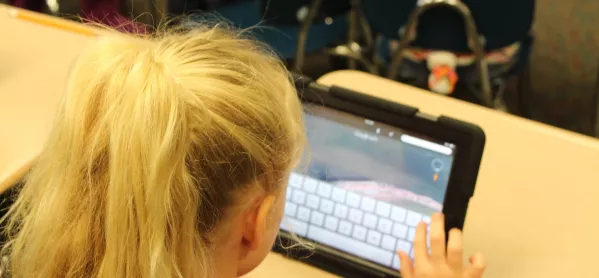Criticism of the Scottish government’s controversial literacy and numeracy standardised assessments has tended to focus on those for four- and five-year-olds, with Fife Council last week becoming the first authority to vote to scrap the assessments in P1.
However, MSPs have now received evidence suggesting they are “a waste of time and effort” irrespective of when they are sat in primary school - be it P1, P4, or P7.
The first teacher to date to have their evidence go to a parliamentary inquiry into the tests published concludes that, so lacking are they when it comes to providing “relevant and required information to support the teaching of the pupils”, that she suspects they “will eventually be used by Scottish government for other purposes”.
The teacher appears to be hinting that they may yet be used to provide the government with big data that it can use to judge the system - something the government has been at pains to deny.
The Scottish Parliament’s Education and Skills Committee put out a call for views on the Scottish National Standardised Assessments (SNSAs) last month and has now published the first batch of submissions.
Just one submission comes from a practising school teacher: Alison Taylor, a support for learning teacher, who works across two primary schools and was given responsibility for putting pupils through the tests when they were introduced for the first time during the 2017-18 school year.
Ms Taylor said that because the tests were carried out in May - at the behest of the local authority she works in - the primary schools themselves did not have time to turn the results into next steps for P7 pupils, as they were on the cusp of leaving, and the secondary schools did not ask for the results either. Putting pupils through the tests was therefore “a waste of time and effort”, she said.
She wrote: “We were not asked to provide the results from our P7s to their secondary schools. As they were done in May as primary schools we did not have time to evaluate the results so they were not used for anything. This would seem a waste of time and effort.”
She added the schools she works in had “only just had time to look at last year’s P1 and P4 results” but because they carried out their “own assessments in literacy and numeracy” throughout the session “we have not felt that we need to go to the SNSAs to give us extra details”.
She added: “I am not against assessments; in fact quite the opposite. However, I am not sure that the content on the SNSAs as they stand provide us with relevant and required information to support the teaching of the pupils. Snapshots at P1, P4 and P7 do not help us in the other years. Teachers need to assess pupils all through their years at school. It is part of the teaching and learning cycle.
“Only doing SNSAs at four year levels suggests to me that it will eventually be used by Scottish government for other purposes.”
Ms Taylor reiterated some of the complaints frequently heard from other teachers about P1 pupils finding the tests difficult to sit because they lacked the computing skills to navigate the tests. Because of this, she suggested, they did not perform at their best.
However, she said none of her P1 pupils became “upset”, adding: “I would never manage any assessment in a pressurised way or allow pupils to get anxious. They all tried their best.”
The SNSAs are meant to be sat when teachers deem it appropriate. However, the EIS teaching union pointed out in its submission to the inquiry that, when the tests were sat for the first time in 2017-18, 25 out of 32 councils dictated when they should be taken.
Education secretary John Swinney, however, has been clear that teachers must decide when they are sat.
Mr Swinney said at the Scottish Learning Festival in September that teachers should choose what point in the year it was “advantageous and appropriate” to undertake the national tests and that should be “respected around the country”.




